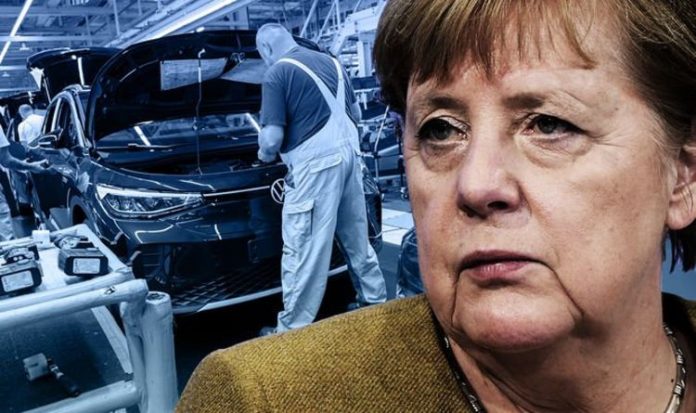A no deal Brexit is still a possibility as the UK and the EU try to negotiate a deal before the deadline passes at the end of this year. An EU source said today that “massive divergences” remain on the key issues as Brussels and London stand firmly by their red lines. Fisheries and regulatory disagreements have held talks up for months, leaving them on a knife-edge. One sector desperate for a deal is the automotive industry – with figures on both sides of the English Channel clamouring for an orderly exit.
With the coronavirus pandemic already hitting economies and businesses hard, car manufacturers have warned a no deal Brexit could lead to a “double whammy crisis”.
In September, UK and European carmakers warned a no deal Brexit could put a £100billion dent in the European automotive industry, having already taken a £90billion hit as a result of the pandemic.
The European Automobile Manufacturers Association penned a letter calling for a deal to be reached.
It said a trade agreement between London and Brussels is a “must” for firms on both sides of the Channel “otherwise our sector – already reeling from the Covid crisis – will be hit hard by a double whammy”.
Mike Hawes, head of the UK Society of Motor Manufacturers and Traders, echoed these concerns for manufacturers in the UK.
He said: “These figures paint a bleak picture of the devastation that would follow a no deal Brexit.
“The shock of tariffs and other trade barriers would compound the damage already dealt by a global pandemic and recession, putting businesses and livelihoods at risk.”
An EU country set to be hit especially hard by a no deal Brexit is Germany, whose car industry benefits greatly from UK trade.
Economists have warned that should Germany lose its access to British markets, more than 100,000 jobs could be lost.
READ MORE: Boris Johnson tipped to snub no deal and cave in to EU demands
Felix Schoenherr of Werte Union – a group within the Christian Democratic Union that has previously criticised Mrs Merkel – spoke of how the German car industry wants to hold on to British trade.
He said in March: “It’s mainly exports, of course the UK is an important market, so we are dependent on that trade relationship as well as our trade with the US, also to China. So this is an issue.
“I think from a German economic perspective the UK is a very important trade partner, and we should try to get an agreement on both sides.”







